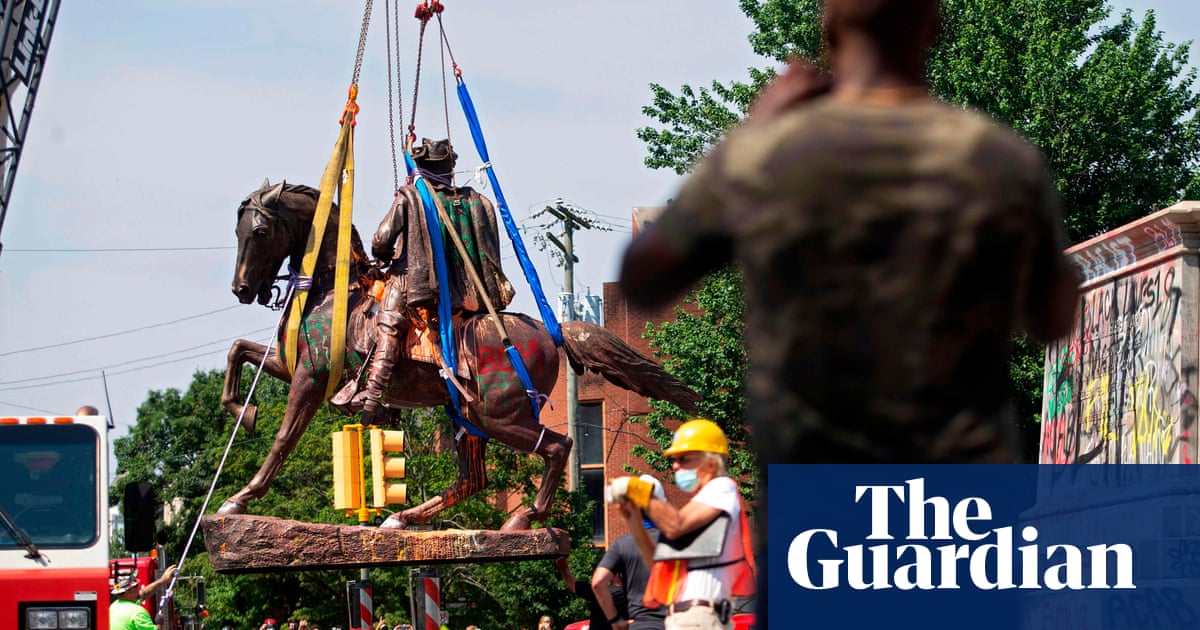Having lived in Virginia most of his life, Larry Sabato can remember racially segregated schools and systematic efforts to stop Black people voting. Now 68, he observes a state that has diversified, embraced liberal values and shifted from symbol of the old south to symbol of the new.
“I have to admit, as a young man I would never have believed it was possible for Virginia to move in such a strong progressive direction,” said Sabato, director of the Center for Politics at the University of Virginia. “I worked for candidates back then who were progressive. I used to joke, ‘If I work for you, you’re going to lose, you have to understand that’. And they always did.
“Virginia has taught the country and the world that America can change, and sometimes can change rapidly, and in a very progressive direction.”
Two dramatic examples came last month when the state general assembly voted to abolish the death penalty – an extraordinary reversal for a state that has executed more people than any other – and to make Virginia the first southern state to legalise marijuana for adult recreational use.
These followed a flurry of measures that put the commonwealth, as it is known, in the vanguard on racial, social and economic issues in the American south. Last year it passed some of the strictest gun laws, loosest abortion restrictions and strongest protections for LGBTQ+ people in the region, as well as its highest minimum wage.
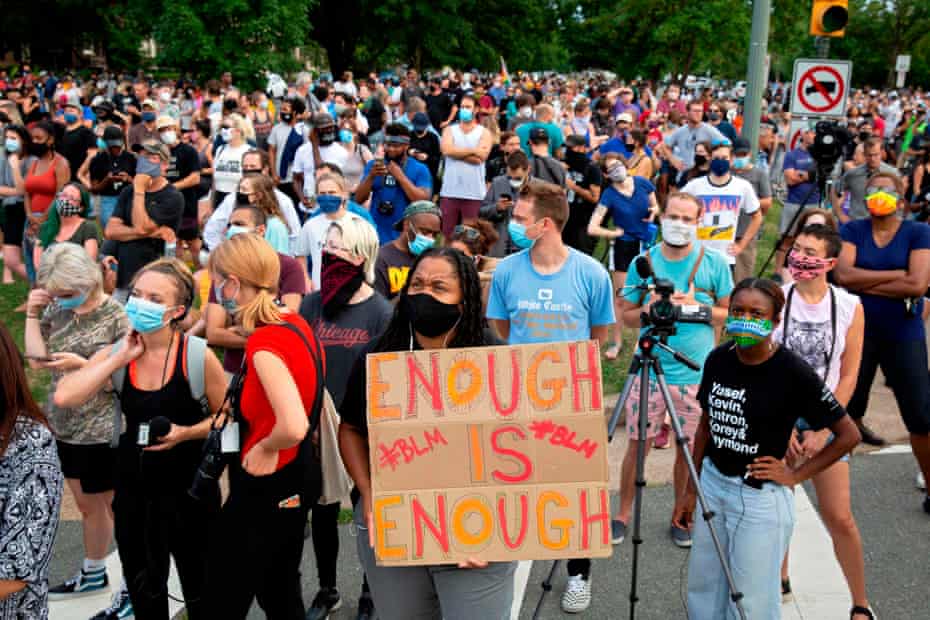
Joe Biden beat Donald Trump by 10 points in Virginia in 2020. Its two US senators are Democrats, its governor is a Democrat and last year Democrats took full control of the general assembly for the first time in a quarter of a century.
Such a monopoly would once have been unthinkable. Sabato reflected: “It was almost a one-party Republican state.
“Virginia had been edging a little bit closer to the Democratic party because of population growth in northern Virginia and Hampton Roads and even the Richmond area. But it was Barack Obama in 2008 that finally got hundreds of thousands of, not just minorities, but also young people registered and voting and we haven’t gone back since.
“The Republican party has drifted further to the right. Instead of responding to the changes and bouncing back to the middle, they’ve decided to double down. They’ve lost every single election in this state from 2010 onwards.”
Sabato was speaking from his office in Charlottesville, looking out on a statue of Thomas Jefferson, the third president who, like the first, George Washington, was a Virginian. Both founding fathers owned enslaved people on sprawling estates – Monticello and Mount Vernon – that have gone far in recent years to confront that legacy for tourists, historians and children.
Virginia’s long and painful history would later include Confederate generals Robert E Lee and Thomas “Stonewall” Jackson fighting to preserve slavery and destroy the union. The state capital, Richmond, was the capital of the Confederacy. The south lost the civil war but Virginia remained a bastion of Jim Crow laws that maintained racial apartheid.
By the 1990s, however, Virginia had elected the first African American governor in the US and political realignment was being fuelled by growing suburbs. The expansion of Washington spilled into northern Virginia, where voters are more likely to be immigrants, college educated and liberal. Other cities have expanded and diversified. The mayors of Richmond and Charlottesville are African American.
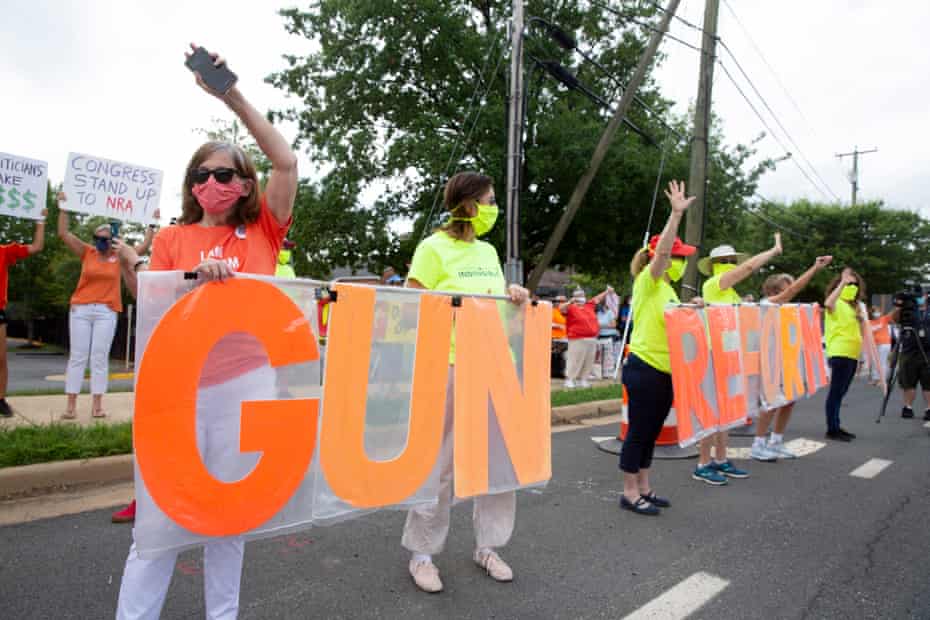
Few changes are as totemic as the demise of capital punishment. Virginia had executed nearly 1,400 people since colonial days, according to the Death Penalty Information Center. Since 1976, when the US supreme court reinstated the death penalty, it had carried out 113 executions, second only to Texas. But in voting to abolish it last month, Virginia’s general assembly noted that it is applied disproportionately to people of colour, the poor and the mentally ill.
The march of progressive values is neither uniform nor irreversible. Virginia’s reforms have provoked resentment in rural areas. Tens of thousands of gun rights activists descended on Richmond last year to protest.
A white supremacist rally in Charlottesville in 2017 was a stark reminder of the potential for backlash. Four years later, the statue of Lee at the centre of the protest still stands. Despite last summer’s Black Lives Matter protests, a giant Lee monument in Richmond also remains intact.
Juli Briskman, a district supervisor in Loudon county, northern Virginia, said: “You don’t have to drive very far to start seeing Trump flags and Confederate flags, and often you see them together. We still have the ‘Don’t tread on me’ licence plate. I’m trying to figure out how we can take that out of the system. So Virginia still has a little ways to go but I think as a ‘southern state’ it is really leading the way right now.
“We’re the first state to pass the Voting Rights Act in the south and that is sitting on the governor’s desk right now. We’ve made a lot of strides in abortion access: last year the general assembly repealed a law that would have required women to get an ultrasound and have certain types of counselling before getting abortion care. We’ve passed a number of gun sense laws in ’20 and ’21, so we’re making our way.”
‘He faced the storm’
Perhaps no one personifies the often uncomfortable, but seemingly inexorable, transformation of Virginia more than Ralph Northam, the 61-year-old governor. Two years ago the Democrat was engulfed in scandal over a blackface image in his 1984 medical school yearbook. In one disastrous press conference, he seemed ready to accept a reporter’s challenge to perform Michael Jackson’s “moonwalk” dance until his wife interjected that these were “inappropriate circumstances”.
Northam faced demands to resign but with his potential successor facing sexual assault allegations, managed to survive. He vowed to focus on racial equality and confronting his own white privilege. He has enthusiastically signed many of the progressive bills passed by the general assembly.
Briskman, a Democrat who shot to fame by giving Trump’s motorcade the middle finger while cycling near his golf course, was among those who called for Northam to quit but now believes he has redeemed himself.
“If he had resigned, we might not have gotten as much done,” she said. “It goes a long way toward reconciliation when somebody like Governor Northam can say he faced the storm and decided that he was going to turn it around and do something about it.”
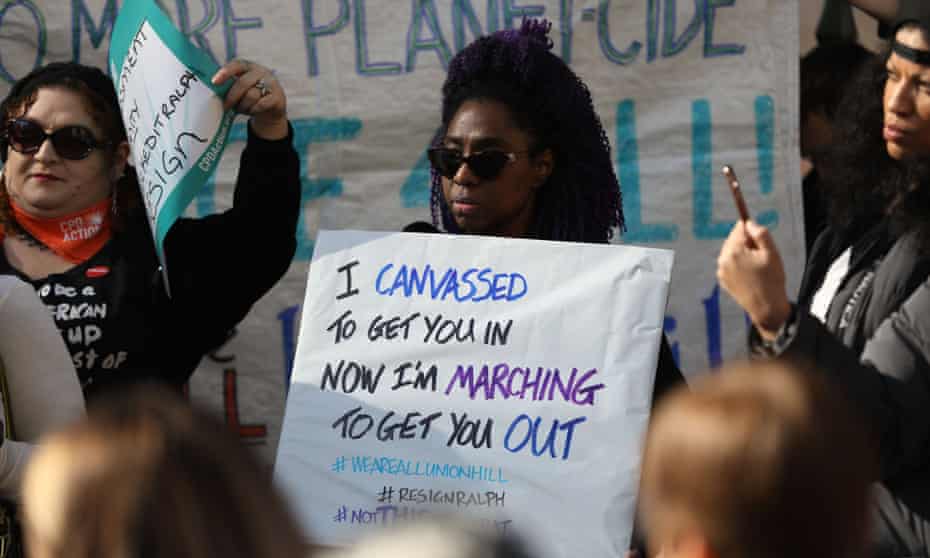
In an interview with the Guardian on Friday, Northam acknowledged the blackface incident had been a watershed moment.
“That was a difficult time for Virginia and I’m thankful that Virginians stuck with me,” he said. “We had worked on a lot of equity issues prior to February 2019 but it really allowed me to travel around: I had listening tours and meetings and I learned so much from various people across Virginia.
“The more I know, the more I can do, so we’ve really been able to put a stronger focus on equity and I made it clear to our administration, to our cabinet secretaries, that whether it be agriculture or education or health or whatever, we would address the inequities that continue to exist in our society today.”
Then, in 2020, came the police killing of George Floyd in Minneapolis and a nationwide uprising against racial injustice.
“That was an awakening for a lot of people that look like me that hadn’t really ever thought through it in such detail,” Northam said. “So I kind of had a head start before that tragedy but I think it was an awakening. People said this just this is not right and we need to make changes.”
Northam grew up in a conservative rural area and was in sixth grade when his school became racially integrated. When he got involved in politics, around 2006-07, he recalls, Virginia was still a red state but turning purple. The “blue wave” truly began with resistance to Trump’s election in November 2016, which prompted Northam to run for governor.
“It’s diversity that really makes this country and, in our case, makes Virginia who we are,” he said. “We’re becoming more diverse every day and so we need to have our lights on and our doors open and make people feel welcome.
“We’ve really used that theme to support our base and also to draw more people to our party and supporting common sense policies. If you compare where we are today versus back in 2016, 2017, we’re essentially a blue state now.”
‘Representation matters’
Northam will soon return to work as a doctor, since state rules prevent him seeking a second consecutive term. Among the Democrats vying to succeed him in November are Terry McAuliffe, governor from 2014 to 2018, and two African American women: Jennifer Carroll Foy and Jennifer McClellan. Victory for either would be another historic breakthrough.
Carroll Foy, 39, who became a member of the Virginia house of delegates in 2017, said: “I can’t speak about what happened in the past but what I can say is I know the man today, and the Ralph Northam today will go down as one of the most progressive governors that Virginia has ever had, delivering on the promises of getting us to expand Medicaid to 500,000 Virginians and helping to reform our criminal justice system.
“I passed a bill to prohibit the use of chokeholds by law enforcement officers. We have just done such incredible things. I carried legalisation of marijuana for several years and now it’s passed in Virginia and that is under Governor Northam leading the charge and taking seriously his commitment to racial reconciliation.”
Carroll Foy was one of the first African American women to graduate from Virginia Military Institute and is aware what message electing a woman of colour as Northam’s successor would send.
“It is absolutely imperative for us to make good on what we’ve been saying,” she said. “Representation matters and for millions of little girls it’s hard to be what you can’t see. We are yet to have a Black woman lead this nation and we’re yet to have a Black woman lead in a state in this country and, while people have applauded Black women for delivering the White House and helping us win Congress, it’s not enough to thank us.
“You also have to support us when we’re ready to lead, and we are ready. Now is our time. You don’t just need bills and pledges for Black women; we need them written by Black women. And I’m excited that as the next governor, I will be able to continue on the legacy that Governor Northam has started in addressing the inequities throughout all of our systems so we can ensure that Virginia’s future is better than its past.”
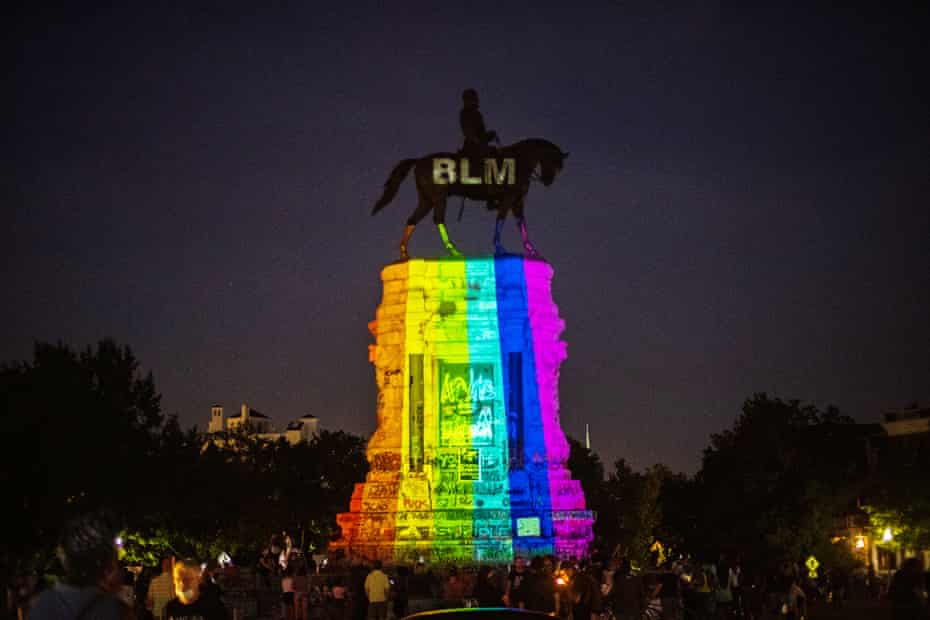
John Edwin Mason, who moved to the state in the mid-1990s and teaches history at the University of Virginia, said: “It is a remarkable change. If you had told me that Virginia was going to legalise marijuana and outlaw the death penalty, I would have been very surprised in 1995 and probably would have told you that you had been drinking a little too much to think that that would be possible.
“It was not simply a largely Republican state when it came to electoral politics, but it felt very conservative and it doesn’t quite feel that way on the whole now, although of course in the smaller cities and in the country, it is quite conservative.”
Mason noted that Virginia Republicans seem to be embracing Trumpism, even after the state comprehensively rejected the president in 2020. Democrats hope other southern states will do likewise.
Mason added: “I think that if you are an optimistic Democratic political operative, you’re probably saying that Virginia is the harbinger of things to come.
“You would point to Georgia which just elected two Democratic senators in a very similar dynamic to the way that our two Democratic senators and Democratic governor have been elected in a state that is very split along regional lines. It is a big change and, of the states of the old confederacy, Virginia is by far the bluest.”
